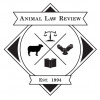INTRODUCTION
ORIGINS OF ANIMAL LAW: THREE PERSPECTIVES
by Richard J. Katz, Michael C. Blumm, and Holly Anne Gibbons
ARTICLES
THE DAY MAY COME: LEGAL RIGHTS FOR ANIMALS
by Tom Regan
This article examines the main arguments used for denying moral rights to nonhuman animals, the rights to life and bodily integrity in particular. Because these arguments are deficient, animals should not be denied legal rights on the basis of their presumed moral inferiority to humans.
FALSE ADVERTISING, ANIMALS, AND ETHICAL CONSUMPTION
by Carter Dillard
In light of the fact that today’s consumers often want their products to be created in the most environmentally-, globally-, and animal-friendly ways possible, unethical sellers sometimes succumb to the incentive to persuade consumers that goods were created more ethically than they actually were. This article investigates the ways that consumers can protect themselves from false advertising through the use of federal and state agencies, independant review, federal and state courts, and private attorneys general actions.
ON REDEFINING THE BOUNDARIES OF ANIMAL OWNERSHIP: BURDENS AND BENEFITS OF EVIDENCING ANIMALS’ PERSONALITIES
by Geordie Duckler
Were animals as personalty appreciated in their fundamental distinctions from other personal properties, the law might be able to fashion a more sophisticated set of legal responsibilities for, and rewards of, such ownership. As evidence doctrines on character and propensity expand and contract to address boundaries for these concepts, a fuller potential for property law may be effectively promoted as a result.
INTEGRATING ANIMAL INTERESTS INTO OUR LEGAL SYSTEM
by David Farve
This article explores the obstacles to obtaining legal rights for animals both within the animal rights movement and within the broader political context. The author examines in which arena legal change might best be sought—the courts, the legislature, state governments, or the federal government. Finally, it makes a number of suggestions as to what type of laws would be the most successful in advancing the interests of animals.
APES, DARWINIAN CONTINUITY, AND THE LAW
by Roger S. Fouts
This article proposes that the delusional worldview that “man” is outside and above the other “defective” organic beings in nature is completely without empirical scientific foundation. An alternative and harmonious way of being is presented that is derived from the acceptance of the biological reality of continuity.
MODERN TRENDS IN VETERINARY MALPRACTICE: HOW OUR EVOLVING ATTITUDES TOWARD NON-HUMAN ANIMALS WILL CHANGE VETERINARY MEDICINE
by Mary Margaret McEachern Nunalee and G. Robert Weedon
The purpose of this article is to trace the historical trends in the attitudes of humans toward non-human animals generally and apply that analysis to recent and predicted future trends in veterinary malpractice jurisprudence. This article is also designed to assist attorneys representing owners and veterinarians in spotting the myriad legal issues that have arisen from these trends in order to more effectively represent parties to malpractice actions.
COMMENTS
THE FUTURE OF VETERINARY MALPRACTICE LIABILITY IN THE CARE OF COMPANION ANIMALS
by Christopher Green
This comment investigates the factual bases of arguments from the veterinary community and of those that support increasing the malpractice liability of veterinarians. Combining law and economics theory with basic mathematics to evaluate the validity of these positions, it then suggests specific measures for legislatively addressing those parties’ concerns.
TAXPAYER STANDING: A STEP TOWARD ANIMAL-CENTRIC LITIGATION
by Varu Chilakamarri
This comment takes a novel approach in animal law jurisprudence by evaluating the taxpayer standing doctrine and how animal welfare proponents may utilize it. The doctrine can potentially be used for public interest litigation whenever a link can be found between a social harm and the use of public monies.
“”¦UND DIE TIERE” CONSTITUTIONAL PROTECTION FOR GERMANY’S ANIMALS
by Kate M. Nattrass
In the summer of 2002, Germany welcomed animals into the folds of constitutional protection. With the addition of the words “and the animals,” Germany became the first country in the European Union, and the second on the European continent, to guarantee the highest level of federal legal protection to its nonhuman animals.
BREED SPECIFIC LEGISLATION: UNFAIR PREJUDICE AND INEFFECTIVE POLICY
by Devin Burstein
This comment examines breed specific legislation—the unfortunate attempt of legislatures throughout the country to address the valid concern over vicious dog attacks by prohibiting or strictly regulating entire breeds, most often pitbulls. To prevent the tragedies that can occur when a dog attacks a human, legislation must take aim at the heart of the problem, the human owners that allow, through negligence or intentional mistreatment and training, these attacks to occur.
LEGISLATIVE REVIEW
2003 LEGISLATIVE REVIEW
by Emilie Clermont
